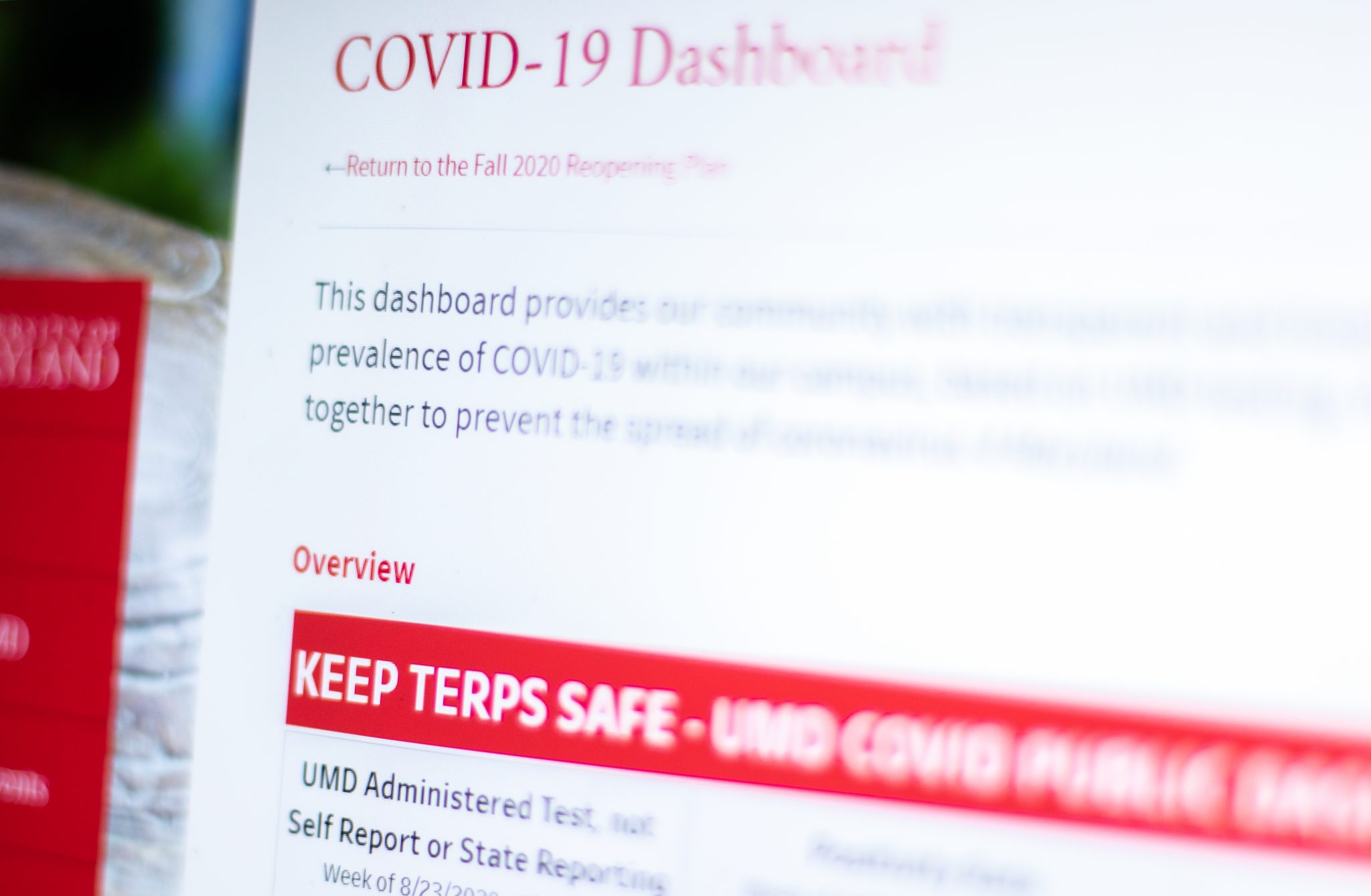Views expressed in opinion columns are the author’s own.
As students and faculty slowly make their way back to the University of Maryland, frontline workers are faced with an increased risk of contracting the coronavirus.
The American Federation of State, County and Municipal Employees Local 1072, the union that represents employees at this university, has been trying to bargain with the university administration to improve safety and health protocols in order to protect frontline workers. But the university has repeatedly refused to show up to the bargaining table.
AFSCME is demanding that anyone entering a university building be tested for COVID-19 and provide a negative result. Currently, testing and symptom checks aren’t consistently enforced, despite the university requiring students to present a negative test result when they returned to the campus. But in reality, there are many holes in the university’s requirements — some students in South Campus Commons apartments, for example, were able to move in without presenting a negative test. It’s also an issue that the 0.3 percent positivity rate reported on the university’s COVID-19 dashboard is likely a large underestimate of the actual rate, given that the reported number is based only on university-administered testing.
According to a survey conducted by AFSCME, 57 percent of respondents expressed “a great deal” or “a lot” of concern about students returning to campus. Additionally, 47 percent also responded that they worry the testing procedures will be inadequate. It is the university’s responsibility to take active measures to protect frontline staff’s safety and guarantee their health this semester.
A first step toward ensuring frontline workers feel protected would be showing up to the bargaining table. University workers shouldn’t feel they’re risking their lives for an employer not willing to protect them in return. And from another basic standpoint of just, you know, respecting other human beings, listening to their concerns about their health and safety is always a phenomenal thing to do.
Another step would be implementing the AFSCME’s demands that all returning students be subject to regular mandatory testing. This would not only demonstrate that the university is listening to frontline workers’ fears about returning to the campus — it would also physically protect them by ensuring no one inside a building on the campus has recently tested positive for the virus.
It’s especially important that AFSCME is heard given the danger of working on a college campus right now. Frontline workers are currently operating in a very unstable environment where human movement is hard to control. Students are going out to bars, visiting friends in other apartments and returning to the campus from different states with potentially higher rates of infection. No matter what the university does, many students on the campus will behave in ways that elevate workers’ risk of infection. In light of this, the administration should be doing everything it can to ensure its workers’ concerns are heard and their demands are met.
The administration has a moral duty to protect frontline workers’ basic human rights to health and safety. This university plays a huge role in whether or not College Park experiences a spike in COVID-19 cases this fall. Because of the university’s role in determining the course of the outbreak in the area, the administration must actively enforce safety and health protocols. By bargaining with AFSCME and heeding its demands, the university could take a real step toward appropriately protecting its workers.
Laura Phillips-Alvarez is a junior anthropology and government and politics major. She can be reached at lauraphillipsalvarez@gmail.com.



